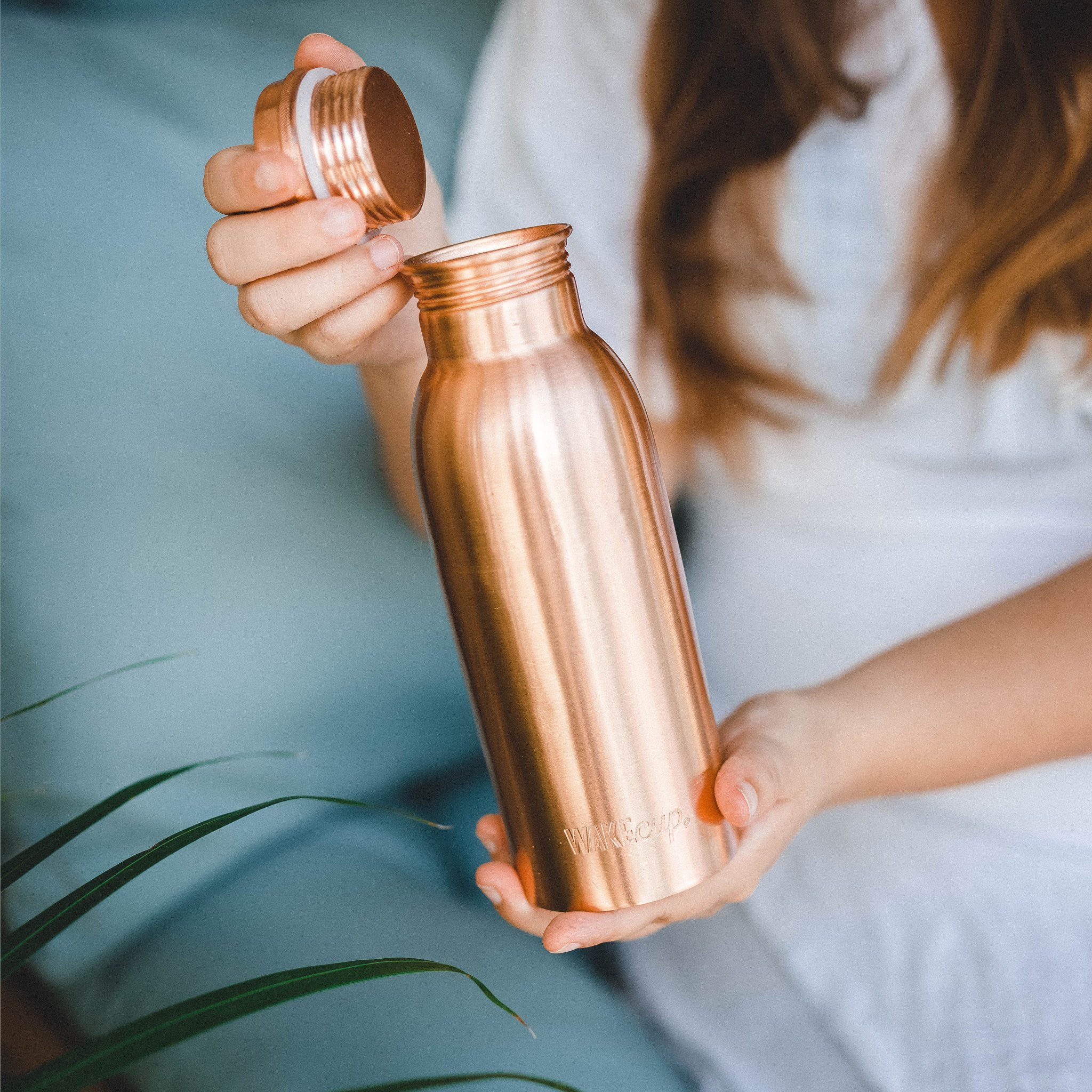As we all know, plastic pollution threatens to do irreparable damage to our planet. A study points out that at the rate at which plastic waste is being generated, there will be about 12 billion metric tonnes of plastic waste in landfills by 2050. Plastic bottles make up a significant portion of plastic pollution. About 1 million plastic bottles are sold every minute globally. So it makes sense to ditch plastic bottles for good. Listed below are 3 types of reusable water bottles that we can consider in our journey towards zero plastic waste.

1. Copper Water Bottle
A copper water bottle is the best among the various types of reusable copper bottles as it has numerous health benefits. Copper is the third most common trace mineral in our body. That is why storing water in a copper bottle is a safe and easy way of absorbing copper.
Cleaning a copper bottle is not as difficult as it may seem. In fact, storing water in copper vessels has been a centuries old tradition in Indian households. To clean plastic bottles we use commonly available liquid cleaners which contain chemicals. But to clean a copper water bottle, all you need is lemon and salt which makes your bottle good as new.
Eco & Faye has come up with a copper water bottle with a 100% pure copper lining and a holding capacity of 1 liter. The earthy, floral design makes it stand apart from the other copper bottles available in the market. Combine style with sustainability by using our lightweight, handy and eco-friendly copper water bottle.

2. Stainless Steel Bottle
Stainless Steel Bottles are another option for the eco-warriors. It is known for its durability and these days such bottles are insulated as well. Moreover, stainless steel bottles are easily available in the market and come in a variety of designs and sizes.
The problem with stainless steel bottles though, is that most of these bottles have a plastic cap. Thus, you cannot go 100% plastic free if you use a stainless steel bottle.
3. Glass Water Bottle
Glass Water bottles are another alternative to plastic water bottles. But using a glass water bottle for daily use can be frustrating because of the fragile nature of glass. In addition, they can be quite heavy. You will have to be careful while handling the bottle and trusting it with small children is a huge no, which effectively makes glass bottles a not so great plastic-free alternative.

In addition, even though glass is fragile, surprisingly glass does not biodegrade quickly. The broken pieces of glass take a whopping 1 million years to biodegrade if they’re dumped in a landfill and not sent to a recycling center!
Moreover, most glass bottles too have plastic caps and lids. Thus, if you want a completely plastic-free bottle, a glass water bottle doesn’t check all the requirements.
On the whole, a copper water bottle is the best option for the eco-warrior as it combines health with sustainability. As we face increasingly dangerous challenges in the form of global warming, climate crisis, and loss of biodiversity, it is high time we say goodbye to plastic and switch to greener alternatives!



Leave a Reply